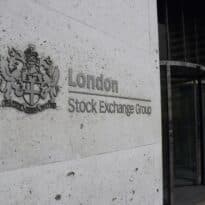Nine out of 10 (91%) UK pension funds have underperformed a FTSE All Share tracker over 10 years, resulting in “seriously damaging effects” on saver’s pension funds, says AJ Bell.
Analysis by the investment platform found almost three quarters (72%) of these funds underperformed by 10% or more and over a third (37%) underperformed by 20% or more.
Laith Khalaf, head of investment analysis at AJ Bell, said: “It’s pretty shocking that nine out of 10 funds investing in the UK haven’t beaten a simple tracker fund over the last ten years. The magnitude of some of the underperformance is equally concerning. This has seriously damaging effects in the real world because of the impact on the size of savers’ pension funds when they retire.”
According to AJ Bell, someone with a 6% net return on a £50,000 pension pot for 20 years will end up £167,357. If that amount was reduced to 4%, the same person would end up with a pot of just £109,556.
AJ Bell said funds from big providers like Clerical Medical, Phoenix, Scottish Widows and Standard Life have all found themselves significantly lagging a tracker. Khalaf said there are a number of factors which can lead to poor pension fund performance.
He said: “Many of these pension funds were set up decades ago when there wasn’t a great deal of appetite from pension providers for investing too differently from the market. At the same time tracker funds were not widely available in the UK. The result was a horde of closet tracker funds sold to pension savers which largely follow the index, but charge fees in line with active funds. Index performance minus high fees is an equation which leads to negative outcomes for pension savers.
“The deep irony is some of these funds have hundreds of millions of pounds if not billions invested in them, and many aspiring active managers who are genuinely trying to beat the market through stock selection would give their eye teeth to run funds of such size.”
Khalaf said chargers for older pension plans often look high by modern standards, with many people having bought stakeholder pensions back in the early 2000s before investment and platform costs started to fall.
“Part of the popularity of stakeholders was driven by regulation in the early noughties. Advisers who recommended a personal pension plan were required by the financial regulator to provide an explanation of why the scheme they were recommending was at least as appropriate as a Stakeholder. The rule was known as RU64 and led to many advisers taking the path of least resistance and recommending a Stakeholder pension, complete with its regulatory halo,” explained Khalaf.
Many older pension funds are now closed to new business, and with the Consumer Duty regulation set to apply to closed books from July, AJ Bell said it would help drive improvements for investors in closed pension funds. However, it warned there is still the risk that providers could drag their feet, be hamstrung by the original pension fund mandates or make improvements which fall short of the most competitive pension plans now available to savers.
The firm said investors should check whether their pension fund is underperforming by contacting their provider to get a performance factsheet as well as details of the annual charges of the pension fund so they can get an idea of whether these might be behind poor performance. A UK tracker fund can now be bought for around 0.3% to 0.5% including platform costs and an active equity fund for around 1% to 1.2% including platform costs.
AJ Bell said investors should also check whether their pension plans have valuable guarantees attached, usually in the form of guaranteed annuity rates or guaranteed investment returns.
For pension investors in an underperforming pension fund, there may be better alternatives available within the existing pension scheme or the option to transfer to a new provider with lower charges.






























